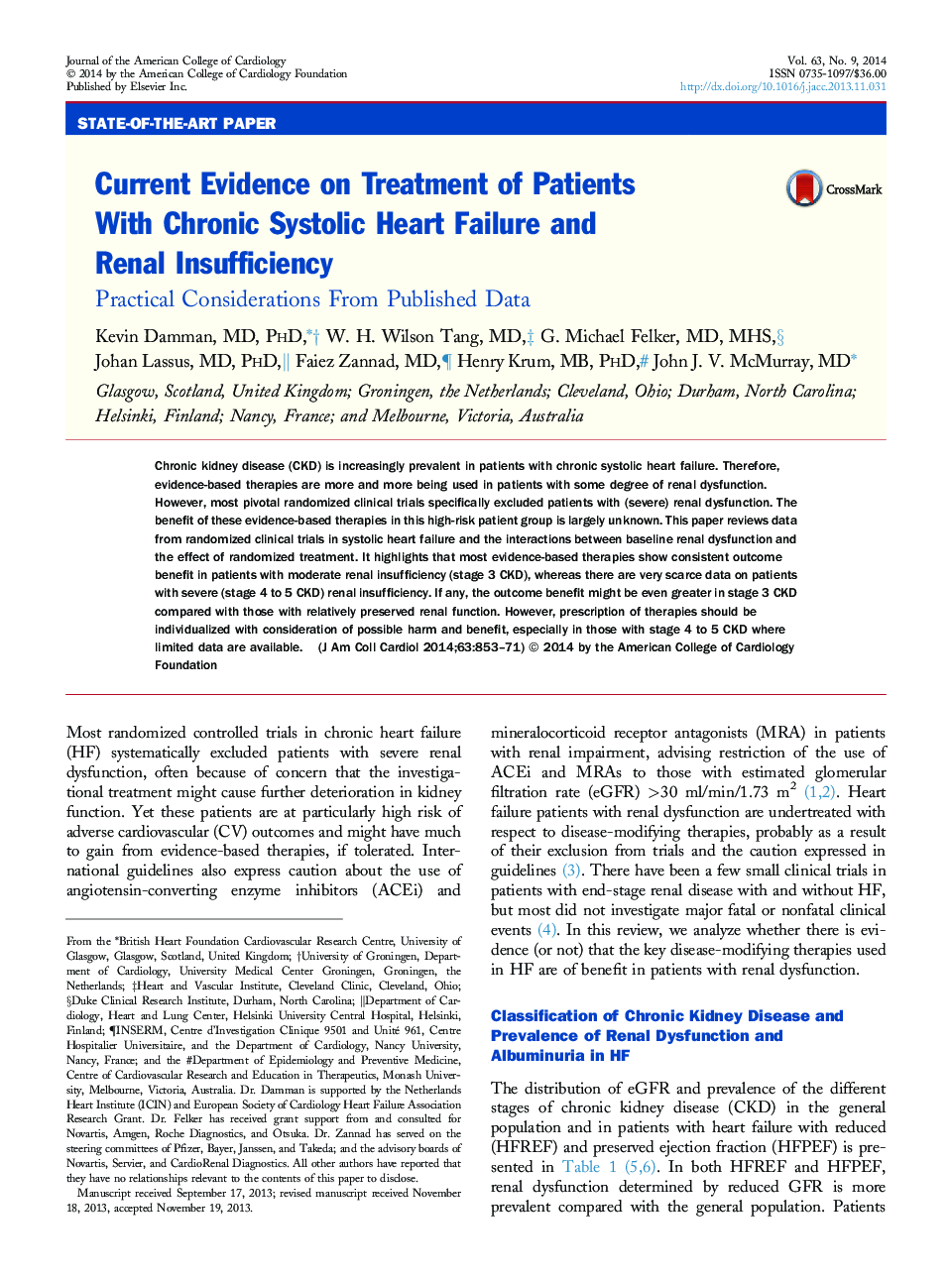| Article ID | Journal | Published Year | Pages | File Type |
|---|---|---|---|---|
| 2944809 | Journal of the American College of Cardiology | 2014 | 19 Pages |
Chronic kidney disease (CKD) is increasingly prevalent in patients with chronic systolic heart failure. Therefore, evidence-based therapies are more and more being used in patients with some degree of renal dysfunction. However, most pivotal randomized clinical trials specifically excluded patients with (severe) renal dysfunction. The benefit of these evidence-based therapies in this high-risk patient group is largely unknown. This paper reviews data from randomized clinical trials in systolic heart failure and the interactions between baseline renal dysfunction and the effect of randomized treatment. It highlights that most evidence-based therapies show consistent outcome benefit in patients with moderate renal insufficiency (stage 3 CKD), whereas there are very scarce data on patients with severe (stage 4 to 5 CKD) renal insufficiency. If any, the outcome benefit might be even greater in stage 3 CKD compared with those with relatively preserved renal function. However, prescription of therapies should be individualized with consideration of possible harm and benefit, especially in those with stage 4 to 5 CKD where limited data are available.
